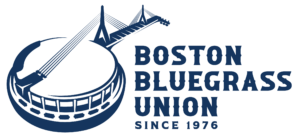Jamie LeShaé Jenkins is a freedom-obsessed artist, educator, and archivist whose transformative work bridges ancestral wisdom, Afrofuturism, and community liberation. Rooted in the understanding that our histories are our blueprints for freedom, Jamie has dedicated her career to excavating, preserving, and amplifying the revolutionary genius of the African diaspora.
As a field researcher and curriculum designer, Jamie has journeyed to the source—immersing herself in the Indigenous technologies and spiritual sciences of Belize, Brazil, Burkina Faso, KMT (Egypt), Ethiopia, Ghana, Indonesia, and Mexico. These pilgrimages inform the Afrofuturistic framework of Ms. J’s Classroom, her creative laboratory where freedom-based art, activism, and education converge to imagine and create new possibilities for our communities.
Jamie’s scholarship is grounded in praxis. Armed with a B.A. in History from Clark Atlanta University and an M.A.T. from National University, she moved from teaching high school history in Atlanta and New York to becoming a national social justice coach and curriculum strategist. From 2016-2025, she served as Founding Executive Director of Building Opportunities & Opening Minds (BOOM), a nonprofit education ecosystem that has delivered liberatory learning experiences and over $300,000 in scholarships to Black and Brown youth in the Dallas area.
In 2025, Jamie expanded her archival practice through the “Daughter of Dallas” initiative, a digital and documentary project that excavates and illuminates the untold stories of Black women artists and advocates in her hometown. She weaves oral histories, multimedia storytelling, and community engagement into a living archive that refuses to let our stories disappear.
Jamie’s multidisciplinary work has been exhibited at The African American Museum (Dallas), Abron Arts Center (New York), The Black Woman Is God (San Francisco), and others, with features in Natural Hair the Movie, Building the Bridge, and the Positively Gam Podcast. Through every medium and platform, she continues her life’s mission to honor the sacred work of preserving and amplifying the genius of activists, elders, and ancestors whose shoulders we stand upon.
Jamie’s collection within the Irma McClaurin Black Feminist Archives serves as both mirror and map—reflecting the brilliance of Black women’s intellectual and creative traditions while charting pathways for future generations of scholars, artists, and freedom fighters to continue the work of liberation.


